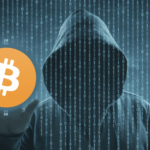
Russia’s Supreme Court Rules Criminal Bitcoin Sales as Money Laundering
Russia’s Supreme Court has ruled that Bitcoin-to-fiat trades by criminals can be considered money laundering, setting a legal precedent for future cases involving virtual assets.
Important Points
- Russia’s Supreme Court rules that Bitcoin-to-fiat trades by criminals can be classified as money laundering.
- The case involved a drug dealer who converted Bitcoin into fiat rubles and transferred the funds to another person’s account.
- The Supreme Court’s interpretation establishes legal precedent and provides clarity on the application of the criminal code to virtual assets.
In a significant ruling, Russia’s Supreme Court has determined that Bitcoin-to-fiat trades conducted by criminals can be classified as money laundering. The court made this judgement in a case involving a citizen who sold narcotics to drug users, accepting Bitcoin as payment. The convicted individual then converted the Bitcoin into fiat rubles and transferred the funds to his live-in lover’s daughter. While a lower court acquitted him of money laundering charges, the High Court initially upheld the ruling. However, the case was taken to the Supreme Court, where a different interpretation was applied.
The Case Details
The convicted man, a drug dealer, raised approximately $100,000 in fiat rubles from the sale of banned stimulant mephedrone. Prosecutors presented evidence indicating that he used technological tools to mask the source of the funds deposited into the bank accounts of his lover’s daughter. Despite not using the fiat funds himself, the fact that they were transferred to another person’s account was deemed by the Supreme Court as being in “economic circulation,” thus satisfying the criteria for money laundering.
Prosecutors’ Objections and the High Court’s Verdict
Prosecutors were dissatisfied with the lower court’s decision and brought the case to the High Court, seeking a reversal. However, the High Court upheld the original ruling, prompting the prosecution to escalate the matter to the Supreme Court. This highest judicial body in Russia interpreted the relevant section of the Criminal Code regarding the “laundering of funds obtained by criminal means” to encompass all financial transactions involving proceeds from criminal activities.
🚨 Russia’s Supreme Court: Criminals’ Bitcoin-to-Fiat Trades Constitute Money Laundering
— Elja (@Eljaboom) June 29, 2023
Implications of the Supreme Court’s Ruling
The Supreme Court’s ruling establishes legal precedent and provides clarity on how the criminal code applies to funds converted from virtual assets, such as Bitcoin. This decision aligns with a 2019 ruling by a Supreme Court judge, who determined that the “purchase of cryptocurrency for criminal proceeds” can be considered a form of money laundering. Consequently, courts and prosecutors are likely to use this ruling as a basis for future crypto-related cases. The impact of this judgment includes the potential ease of seizing and liquidating tokens in such cases, as well as the possibility of harsher sentences when cryptocurrencies are involved.
Recent Arrest Highlighting Crypto Involvement in Criminal Activities
The ruling by the Supreme Court coincides with the recent arrest in Russia of an individual who allegedly sent a crypto donation to the Ukrainian armed forces. The citizen is facing charges of treason for this action. These developments illustrate the increasing scrutiny and legal consequences associated with cryptocurrencies in criminal cases.
In conclusion, Russia’s Supreme Court has firmly established that criminals engaging in Bitcoin-to-fiat trades can be charged with money laundering. The court’s interpretation of the law as it relates to financial transactions involving proceeds from illegal activities raises the potential for greater accountability and harsher penalties. With this decision, the Russian legal system sends a clear message that it is adapting to the evolving landscape of digital currencies and aims to deter illicit activities involving cryptocurrencies.


